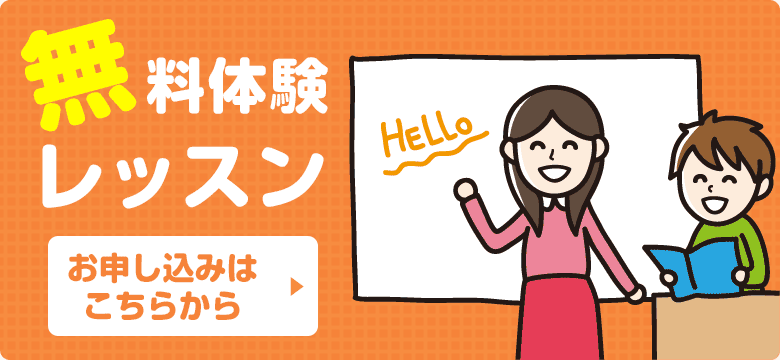カテゴリー:未分類
10 Ways To Say ‘Can You Say That Again?’ – 英会話・英語 アミック
In English, there are many ways to have your speaking partner repeat themselves if you didn’t hear what they said. Some of these are pretty colloquial, but try out the following the next time you are speaking to a native English speaker and need them to repeat something.
- “Can you say that again?”
- “What did you say?”
- “One more time, please.”
- “Can you repeat that?”
- “I’m sorry?”
- “What now?”
- “Can I hear that again?”
- “Pardon?”
- “I beg your pardon?”*
- “I didn’t catch that, can you say it again?”
*use only if you think the person is saying something offensive or surprising.
Netflix’s Insatiable: A Bad Idea? 英会話・英語 アミック
Have you heard of this new Netflix show, Insatiable, that may or may not be coming out later this year? I watched the trailer earlier this week and it seems…problematic, to say the least. Here’s the official trailer so you can judge for yourself:
Yikes. I have many problems with this show just from seeing the trailer.
Patty is portrayed by Debby Ryan, a 25 year old actress who is playing the part of a high schooler. Patty is constantly bullied for her weight. She believes that if she were thinner, she could have a normal high school experience of dating boys and being friends with the popular girls. Patty’s life changes dramatically when she is seemingly punched in the face by a homeless man which causes her to have her jaw wired shut. She then loses an incredible amount of weight and seeks revenge on those that made fun of her in the past. Patty decides to get even by winning a beauty pageant. Patty and her classmates may or may not learn a lesson about inner beauty and that getting revenge on others is bad.
Sigh. Here’s what I have a problem with:
I realize that this show was probably written by a team of people who have been out of high school for twenty-some years. Granted, I’ve been out of high school for about ten years, but I can almost guarantee you that no one makes fun of people for being fat. Have you seen the statistics of obesity in the U.S.? Newsflash: practically everyone is overweight.
That being said; Patty?? Who under the age of 50 has the name Patricia aka Patty? It seems pretty convenient that this story is about an overweight girl who just happens to be called Patty. Such lazy writing.
Additionally, the “Mean Queen Bee” of the high school trope is so played out. Think of the most popular girl at your high school; was she mean? No, right? Because then no one would like her. The popular girl in school is probably smart, athletic, and nice to her friends and classmates, and indifferent to everyone else. Additionally, the trailer shows that someone has spray painted “Fatty Patty” on Patty’s school locker. That’s destruction of school property! I’m pretty sure “petty vandalism” isn’t a popular high school girl’s list of hobbies.
My biggest complaint is the entire premise of the show, really. A young girl (portrayed by an adult) is punched in the face by a man which causes her to lose a lot of weight. She wants to lose weight because she wants to be attractive to her peers and have a “normal high school experience”. The popular girls in her class constantly tease her for her weight and so after she loses said weight she decides to get her revenge on them by way of a beauty contest.
Do you see what I’m getting at here? This show has opened a can of worms that can be so damaging for young viewers. Young people are already susceptible to body issues and might try to copycat Patty’s method of losing weight. I think there’s a possibility that this show could cause eating disorders or body issues as people try to seek validation through weight loss.
It seems like the writers of the show have heard the recent backlash and have responded in kind.
What do you think? Is Insatiable problematic or will you give it a try?
英会話・英語 アミック 5 ways to use “in” with time expressions
In with time expressions
In is a preposition of time. It can be used with:
Months
- I’m going on holiday in May.
- I’ll next see you at Christmas in December.
- I think we arrived some time in June.
Seasons
- In winter, it’s cold.
- I think this year I’ll have my holiday in summer.
- Mummy, do the leaves fall off the tree in spring or in autumn?
Years
- I finished school in 2000.
- The Titanic sank in 1912.
- I grew up in the 1930s.
Times of day
- I leave home in the morning.
- I get home in the evening.
- I’ll see you in the afternoon.
Be careful!
- I can’t sleep at night.
The past, present and future
- In the past, people died much younger.
- You need to learn to live in the present.
- In the future, you’ll learn everything from videos.
Eight Favorite Quotes To Chew On- 英会話・英語 アミック
When I read, I make many highlights and underlines. Usually these are new words, interesting facts, or thought-provoking quotes. I put the best of those quotes in a dedicated Evernote document, which I look at from time to time if I am feeling down or in need of inspiration; here are a few of my favorites from that file.
“The superior man is distressed by his want (lack of) ability.” –Confucius
“Freedom is not the absence of commitments, but the ability to choose—and commit myself to—what is best for me.” –Paulo Coehlo
“Let yourself be silently drawn by the strange pull of what you really love. It will not lead you astray.” -Rumi
“The meeting of two personalities is like the contact of two chemical substances; if there is any reaction, both are transformed.” –Carl Jung
“Even if you fail at your ambitious thing, it’s very hard to fail completely. That’s the thing people don’t get.” –Larry David
“We are born here on Earth to fart around, and don’t let anybody tell you any different.” –Kurt Vonnegut Jr.
“The more you invest in yourself, the more other people invest in you.” –Unknown
“This sentence has five words. Here are five more words. Five-word sentences are fine. But several together become monotonous. Listen to what is happening. The writing is getting boring. The sound of it drones. It’s like a stuck record. The ear demands some variety. Now listen. I vary the sentence length, and I create music. Music. The writing sings. It has a pleasant rhythm, a lilt, a harmony. I use short sentences. And I use sentences of medium length. And sometimes, when I am certain the reader is rested, I will engage him with a sentence of considerable length, a sentence that burns with energy and builds with all the impetus of a crescendo, the roll of the drums, the crash of the cymbals–sounds that say listen to this, it is important.” –Gary Provost
More Soundcloud Treasure「英会話・英語 アミック」
This is totally nerdy but I heard this track on a Dark Souls live stream (a live stream on Twitch of someone I like playing Dark Souls 😛 ) and searched for it on Soundcloud right after. This is a sound I don’t usually listen to, but Lil Kuudere and his producer Sukoyomi really made something catchy and hard-hitting here and I can’t get enough of it recently.
Joe
https://soundcloud.com/sukoyomi/alone



